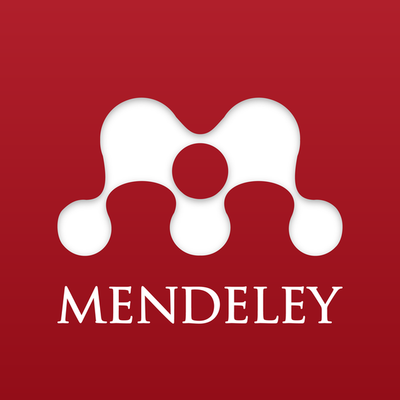Reflective Practice and Teaching Philosophy: Insights from Experienced EFL Teachers in Indonesia
DOI:
https://doi.org/10.26740/nld.v6n1.p39-50Keywords:
reflective practice, teaching philosophy, EFL teachersAbstract
Understanding teachers’ teaching philosophy is central to their professional growth, yet research on experienced EFL teachers’ reflective practice in Indonesia remains limited. This study addresses the gap by exploring how experienced teachers conceptualize their teaching philosophy through reflection. A qualitative case study was conducted with three experienced Indonesian EFL teachers, each holding more than nine years of teaching experience and a master’s degree in English education. Data were collected through six rounds of semi-structured interviews and reflective journals, guided by established reflective frameworks. Triangulation was applied to ensure trustworthiness, and thematic analysis was used to interpret the data. Eight themes emerged: (1) the role of English in formal schooling, (2) external influences on teaching, (3) perceptions of being a teacher, (4) experiences of teaching English, (5) challenges in English instruction, (6) strategies for managing classroom problems, (7) adaptation of teaching methods, and (8) critical incidents shaping professional identity. These findings highlight how personal experiences, contextual constraints, and reflective engagement shape teachers’ philosophies and practices. The study demonstrates that reflective practice enables teachers to align pedagogical choices with their evolving philosophy, fostering professional identity and responsiveness to learners’ needs. The results resonate with global literature on reflective teaching while emphasizing the Indonesian context.
Downloads
References
Ahmad, I., Said, H. B., Zeb, A., Rehman, Sh. U., Ahmad, SH., & Khan, W. (2013). How does reflective practice improve teachers' classroom teaching skills? Case of community-based schools in District Chitral, Khyber Pakhtunkhwa. Social Sciences and Humanities, 4(1), 73–81.
Akbari, R., Kiany, G. R., Naeeni, M. I., & Allvar, N. K. (2008). Teachers' teaching styles, sense of efficacy, and reflectivity correlate with students' achievement outcomes. IJAL, 11(1), 1-27.
Aliakbari, M., Khany, R., & Adibpour, M. (2019). Exploring possible relationships between EFL teachers' reflective practice, job satisfaction, and school context variables. TESOL Journal, 0(0), 1-20. https://doi.org/10.1002/tesj.461
Bailey KM (1996). The best-laid plans: teachers' in-class decisions to depart from their lesson plans. In: Bailey KM, Nunan D (eds) Voices from the Language Classroom. Cambridge: Cambridge University Press, pp. 115–40.
Barkhuizen, G. (2016). Narrative approaches to exploring language, identity and power in language teacher education. RELC Journal, 47(1), 25–42.
Beatty, J. E., Leigh, J. S. A., & Dean, K. L. (2009). Philosophy rediscovered: Exploring the connections between teaching philosophies, educational philosophies, and philosophy, Journal of Management Education, 33(1), 99–114. https://doi.org/10.1177/1052562907310557
Borg, S. (2018). Teachers’ beliefs and classroom practices. Language Teaching, 51(2), 248–265.
Braun, V., & Clarke, V. (2006). Using thematic analysis in psychology. Qualitative Research in Psychology, 3(2), 77–101. https://doi.org/10.1191/1478088706qp063oa
Brookfield, S. (1990). The skillful teacher. San Francisco: Jossey-Bass.
Cohen, L., Manion, L., & Morrison, K. (2005). Research methods in education (5th ed.). London and NY: RoutledgeFalmer. https://doi.org/10.4324/9780203224342
Creswell, J. A., & Creswell, J. D. (2018). Research design: Qualitative, quantitative, and mixed methods approaches (5th ed.). London: SAGE.
Ellsasser, C. W. (2008). Teaching educational philosophy: A response to the problem of first-year urban teacher transfer. Education and Urban Society, 40(4), 476-493. https://doi.org/10.1177/0013124507304690
Farrell, T. S. C. (2007). Reflective language teaching: From research to practice. London: Continuum.
Farrell, T. S. C. (2015). Promoting teacher reflection in second language education: A framework for TESOL professionals. New York NY: Routledge. https://doi.org/10.4324/9781315775401
Farrell, T. S. C. (2019). Reflecting on reflective practice: (Re)visiting Dewey and Schön. TESOL Journal, 10(3)
Farrell, T. S. C., & Ives, J. (2014). Exploring teacher beliefs and classroom practices through reflective practice: A case study. Language Teaching Research, 0(0), 1-17. https://doi.org/10.1177/1362168814541722
Ghaye, T. (2011). Teaching and learning through reflective practice: A practical guide for positive action (2nd ed.). New York NY: Routledge. https://doi.org/10.4324/9780203833322
Goodyear, G., & Allchin, D. (1998). Statements of teaching philosophy. In M. Kaplan & D. Lieberman (Eds.), To improve the academy: Resources for faculty, instructional, and organizational development (Vol. 17, pp. 103–122). Stillwater, OK: New Forums Press.
Hassan, A., Maharoff, M., Abidin, N. Z., & Ro'is, I. (2015). Teacher trainers' and trainee teachers' understanding of the curriculum philosophy regarding soft skills embedment in the Malaysian Institute of Teacher Education. Policy Futures in Education, 0(0), 1–12. https://doi.org/10.1177/1478210315597857
Kheirzadeh, S. (2018). The effect of reflective teaching on Iranian EFL students' achievement: The case of teaching experience and level of education. Australian Journal of Teacher Education, 43(2), 143-156.
Kim, M. (2004). Teachers' philosophical orientation and practices: A study of novice preschool teachers in South Korea. Contemporary Issues in Early Childhood, 5(3), 276–292. https://doi.org/10.2304/ciec.2004.5.3.3
Korthagen, F. A. J. (2017). Inconvenient truths about teacher learning: Towards professional development 3.0. Teachers and Teaching, 23(4), 387–405.
Mann, S., & Walsh, S. (2017). Reflective practice in English language teaching: Research-based principles and practices. Routledge.
Menter, I., Elliot, D., Hulme, M., Lewin, J., & Lowden, K. (2011). A guide to practitioner research in education. London: SAGE.
Merriam, S. B. (2009). Qualitative research: A guide to design and implementation (revised and expanded from qualitative research and case study applications in education). CA: Josey-Bass.
Merriam, S. B. (2009). Qualitative research: A guide to design and implementation. Jossey-Bass.
Patton, M. Q. (2002). Qualitative research and evaluation methods (3rd ed.) CA: SAGE.
Ramsey, V. J., & Fitzgibbons, D. E. (2005). Being in the classroom. Journal of Management Education, pp. 29, 333–356. https://doi.org/10.1177/1052562904271144
Richards, J. C. (2010). Competence and performance in language teaching. RELC Journal, 41(2), 101–122. https://doi.org/10.1177/0033688210372953
Richards, J. C., & Ho, B. (1998). Reflective thinking through journal writing. In J. C. Richards (Ed.), Beyond training (pp. 153-170). Cambridge: Cambridge University Press.
Riordan, T. (2008). Disciplinary expertise revisited: The scholarship of teaching and learning philosophy. Arts& Humanities in Higher Education, 7(3), 262–275. https://doi.org/10.1177/1474022208094411
Yin, R. K. (2003). Case study research: Design and methods (3rd ed.). CA: Sage Publications.
Yumarnamto, M. (2017). The career path of an Indonesian EFL teacher: A professional capital perspective. RELC Journal, 0(0), 1-13. https://doi.org/10.1177/0033688217730141
Downloads
Published
Issue
Section
 Abstract views: 482
,
Abstract views: 482
, PDF Downloads: 124
PDF Downloads: 124










